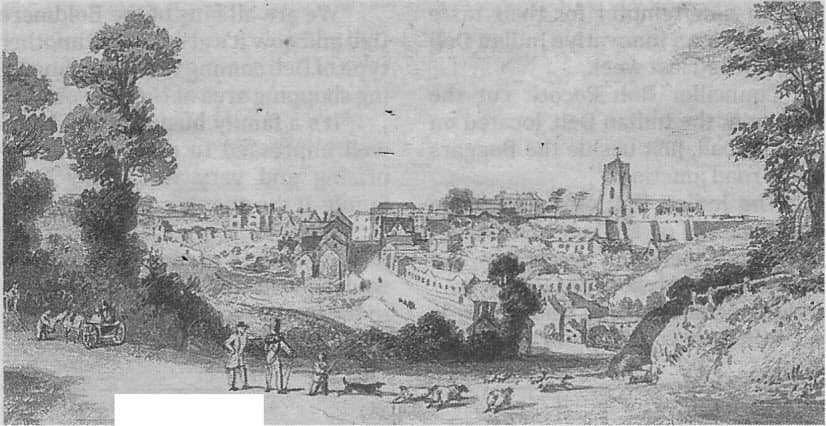
In summer 1860 'History of the Forest and Chase of Sutton Coldfield' was published, without the author being identified, by Simpkin, Marshall & Co.
This publisher specialised in bringing out the work of unknown writers, and expected them to pay for printing. The book was well-received, with reviews declaring it to be 'full and comprehensive' and 'very interesting ... well written, well printed and well arranged:
The identity of the author was not a secret. The book was written by Agnes Bracken, who was almost 60 and unmarried, living with her sisters in High Street.
The sisters survived on a private income, though Agnes also offered tuition. She was a talented artist, and thankfully a collection of her rather charming sketches of Sutton at this time survive.
Like many of the local histories of the 19th century, the book is, at times, almost a history Of England.
In truth it is perhaps best described as an antiquarian work. The reader is told, for example, that a stone circle was erected on Maney Hill by the Druids and that the Army that marched to defeat the Jacobites at Culloden in 1745 passed through Sutton. These are great stories, but, alas, they are untrue. With Bishop Vesey, Bracken had a true story to tell. She catalogues all that he did for the town as he practised 'philanthropy in advance of his age'- securing 'untramelled self-government' in the famous charter of 1528, paving the town, enlarging the church, providing the inhabitants with pasturing rights in the park, encouraging trade, building stone houses and founding the grammar school.
Bracken's book found its way into many middle-class houses in Sutton, -and undoubtedly did much to consolidate Bishop Vesey's reputation in the town.
Bracken saw the story of Sutton through the eyes of its leading families, and so most of the rest of the book is concerned with Holy Trinity and the other Anglican churches, the corporation which governed the town and the occupants of the big houses.
The vast majority of the population were agricultural labourers, and Bracken has nothing to say about their lives. Yet they contributed to what she loved most about Sutton - its rural charm. 'Sutton may readily be spoiled - not easily improved', she wrote.
Glimpses into Sutton's Past Parts I, II & III by Stephen Roberts can be ordered from Amazon.
Associate Professor
Stephen Roberts